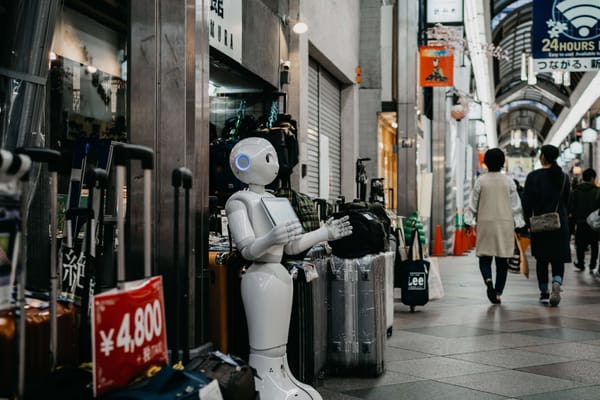This article comes from Ali Akhtar’s talk, ‘How generative AI is transforming revenue enablement’, at our 2023 Chicago Sales Enablement Summit, check out his full presentation here.
What if I told you AI will soon become your sales team's MVP?
When we think about generative AI conquering new frontiers, possibly the most commercially impactful domain yet is revenue enablement.
As Founder and CEO of Letter AI, my team and I live and breathe revenue tech innovations daily.
We think a lot about how emergent technologies aren't just revolutionizing products – they have immense potential to transform go-to-market processes. And generative AI sits at the very epicenter.
In this article, I'll explain why there is so much hype around AI right now, what is generative AI, share the impact it's already having, and most importantly, walk through specific ways we're using it to revolutionize revenue enablement.
Let’s get started!
Why generative AI is having a moment
AI has actually been around since the 1950s, so why is everyone talking about it now? Put simply, AI models have become far more advanced and capable over the past five years alone thanks to breakthroughs across three key areas:
- Better techniques for building AI models: Innovations like Google's Transformer architecture have enabled models like ChatGPT that are superior at processing language.
- More computing power: Chips keep getting faster and stronger, allowing us to train bigger models on more data.
- Expanded data: We now have access to vast datasets like the whole public internet to train AI models.
But most significant is the shift from rules-based systems to learning systems.
Traditionally, technology solutions have been programmed with rigid rule sets. AI takes a radically different approach - it learns patterns from exposure to vast datasets.
This makes AI uniquely equipped to excel at previously impossible tasks like natural language processing.
Just as humans learn concepts by seeing examples rather than memorizing exhaustive rules, modern AI systems now mimic that capability.


Sales enablement insider
Thank you for subscribing
Level up your sales enablement career & network with sales enablement experts
An email has been successfully sent to confirm your subscription.
 Follow us on LinkedIn
Follow us on LinkedIn




